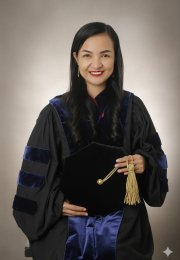- Resource Types
- Resource Languages
- Institutional Repository
About Site Language
WHDL is viewable in multiple languages. Use the pull-down menu to select a language to view the site.
I changed my language, but I’m still seeing resources in the other languages?
If a resource or text has not been translated into your selected language, it will appear in the initially added language. We are always looking for help translating these resources. If you can help, contact us!
WHDL - 00012930


click to copy
Karumathy, P (2020). Proficiency level of selected early childhood teacher-education graduates of Harris Memorial College: implications to curriculum enrichment .
Karumathy, PonelynProficiency level of selected early childhood teacher-education graduates of Harris Memorial College: implications to curriculum enrichment . , 2020
Karumathy, PonelynProficiency level of selected early childhood teacher-education graduates of Harris Memorial College: implications to curriculum enrichment . , 2020
Karumathy, PonelynProficiency level of selected early childhood teacher-education graduates of Harris Memorial College: implications to curriculum enrichment . , 2020
ABSTRACT The present research entitled, “Proficiency Levels of Selected Early Childhood Teacher-Education Graduates of Harris Memorial College: Implications to Curriculum Enrichment,” had been undertaken against the backdrop of the declared efforts of CHED to improve the quality of education in the Philippines by setting the highest standards as regards the objectives, components, and processes of the pre-service teacher education curriculum. The investigation had put forward the following questions: Are graduates of HMC adequately equipped to serve as early childhood educators? How proficient are they in the four domains of: (1) content knowledge and pedagogy; (2) learning environment; (3) diversity of learners; and (4) spiritual maturity and Christian witness? A trifocal theoretical and scientific framework comprising the social constructivist theory of Lev Semenovich Vygotsky, the Philippine Professional Standards for Teachers (PPST) of DepEd, and Harold Burgess’s Model for Analyzing Religious Education Curriculum has served as the foundation for this research. Vygotsky’s idea that highly proficient teachers are essential in the educational venture of children undergirds the theoretical framework of this work, whereas PPST and Burgess’s model through the discussion of Catherine Stonehouse provided the bases of the four domains that have been employed. This investigation has a descriptive-survey design that employs a combination of quantitative and qualitative methodology in gathering data through the self-evaluation of alumni, the evaluation by alumni’s peers, and alumni’s supervisors. There are 90 respondents taken as sample through sequential nested nonprobability-probability sampling method. Quantitative data were subjected to frequency distribution, weighted mean computation, Chi-square Test of Independence, and one-way ANOVA or Analysis of Variance. Qualitative data were processed through MAXQDA software for coding, clustering, and thematic analysis and interpretation. Results on the demographic characteristics of respondents revealed that majority of the alumni has less than three years of teaching while majority of the peers and supervisors have four years or more of teaching and administration service. Majority of the alumni and the peer respondents are serving as preschool teachers while exactly half of the supervisors are functioning as principal and the remaining half has the title as school administrator. Findings through the Chi-square Test of Independence established that there is no significant relationship between the number of years in the institution nor the position of the respondents when tested against the proficiency ratings they conferred. The evaluation of the alumni, peers, and supervisors constantly indicated that the HMC graduates have high proficiency levels in the domains of content knowledge and pedagogy, learning environment, diversity of learners, and spiritual maturity and Christian witness which means that the alumni are adequately equipped to serve as early childhood educators. The overall ranking of results showed that the HMC graduates were rated highest in spiritual maturity and Christian witness, second in the domain of learning environment, third in content knowledge and pedagogy, and fourth in diversity of learners. The one-way Analysis of Variance confirmed that there is not any notable statistical variation between and among the evaluation of the alumni, the peer, and the supervisor respondents.
11 Resources
This collection contains the dissertations completed in partial fulfillment of the Degree PhD in Holistic Child Development, and PhD in Transformational Learning at Asia-Pacific Nazarene Theological Seminary in partnership with Asia Graduate School of Theology.
34 Resources
This collection contains the dissertations of our graduates that fulfilled the degree of Doctor of Philosophy in Holistic Child Development at Asia-Pacific Nazarene Theological Seminary. The program is designed for those preparing to be equipped in leadership, teachers of children, practitioners, and pastors, so that they will have the gifts, skills, and capacity to care holistically for children inside and outside the church.
2021
2013
2018
2017
1995
2016
2024
2009
2017
2002
2020
2017
2022
2020
2020
2007